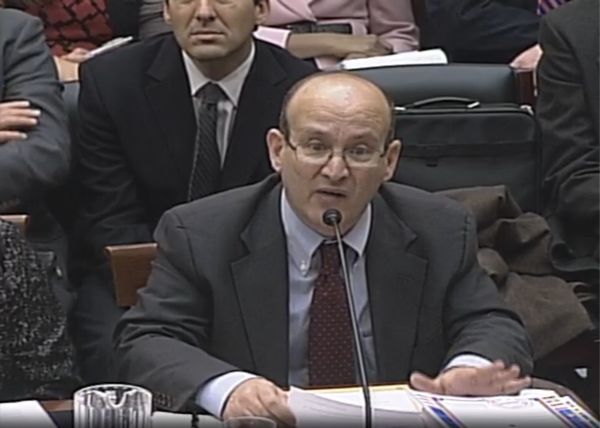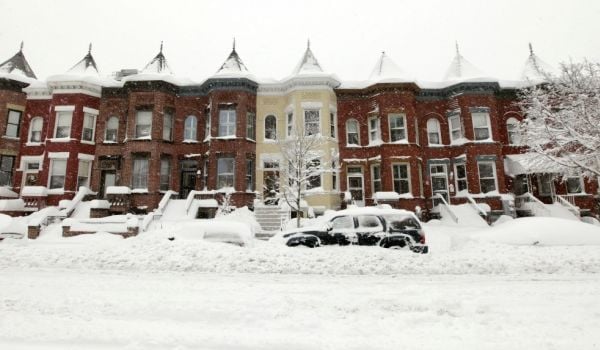Should copyright apply to public standards like fire codes, building codes and electrical codes? The rules that govern these topics are often written up by independent groups and then bolted onto local laws as sort of technical addenda. Print versions can be sold for fairly substantial amounts of money, often to local governments. So-called standards developing organizations that write the codes argue that it’s an involved and complicated process for which they should be compensated. Others, though, ask whether once those standards are “incorporated by reference” into federal or local law, don’t they become law and thus be freely available to all who want to read them?
Understandably, where standards meet copyright law has heretofore been an obscure subject. But as Washington returns its attention to copyright reform, the topic is gaining traction — if only, perhaps, because its novelty means that it hasn’t been chewed over to the point of total flavorlessness like nearly every other aspect of copyright law.
A House Judiciary subcommittee hearing on Tuesday tackled the sweeping topic of, as its title went, “The Scope of Copyright Protection.” Coincidentally, the Supreme Court announced on Monday that it would hear a trio of high-stakes copyright cases this spring. Most prominent among them is ABC Inc. v. Aereo, in which major broadcasters have gone after a technology company that makes it possible for customers to tap into local broadcasts via the Internet.
Building codes, it’s probably fair to say, weren’t the reason why the hearing room on Tuesday was standing-room only. But the nearly three-hour hearing offered a chance to take Congress’ temperature on the issue before copyright reform heats up later this year.
Cast as opponents on the standards question were Patricia Griffin, vice president and general counsel at the umbrella group American National Standards Institute, and Carl Malamud, a longtime advocate for public access to government data who heads Public.Resource.org.
“People don’t know how much we depend upon standards to make our everyday life work,” Griffin said to start. “Standards help ensure that a light bulb fits into a socket, that you can use any ATM machine in the world, and that products on store shelves are safe.” Standards, per Griffin, are created by third-party groups in a highly evolved public-private partnership. It’s cheaper and more efficient for those organizations to create those standards, she argued, and courts have upheld the notion that the circumstances of their creation mean that they’re not authored in the same way laws are. Keeping standards bodies from charging for access to standards, Griffin said, “disrupts the standards development ecosystem.”
Malamud countered. “If you look at the building codes,” he said, “they all begin with a sample ordinance of incorporation: ‘We the people of [insert name of jurisdiction here] do hereby adopt this code.’ This was meant to be the law.”
This, he said, triggers an unavoidable truth: “That the law has no copyright because it is owned by the people is a principle that has been repeatedly reaffirmed by the courts.” Malamud’s group has been posting standards online, in part to spark innovation around their substance. For that, it’s facing a lawsuit from the National Fire Protection Association; the American Society of Heating, Refrigerating, and Air-Conditioning Engineers; and the American Society for Testing and Materials International. Those outfits, Malamud said, are simply trying to extract too much from the situation. They make, he said, plenty of money offering “ancillary services” made possible by virtue of being de facto lawmakers, like memberships, trainings and certifications — they don’t need to charge for the codes, too.
Malamud also called for an “Edicts of Government” amendment to the Copyright Act holding that “Edicts of government, such as judicial opinions, administrative rulings, legislative enactments, public ordinances and similar official legal documents are not copyrightable for reasons of public policy.”
It’s only been within the last handful of years that Malamud has taken up this standards cause, and it hasn’t been all that clear what Congress would make of the effort. Tuesday’s hearing suggested that a good deal of bipartisan support exists for the idea that you can’t extend copyright protections to rules that function as law — even on the traditionally copyright-friendly Judiciary Committee.
Darrell Issa, chairman of the House Government Oversight Committee and a former technology industry figure, focused, like Griffin, on the power of standards. But to him, the power comes from the fact that they make innovation possible. We wouldn’t be talking about an Aereo case, Issa said, if digital broadcasting didn’t have standards that made those transmission interoperable.
Issa carefully read to the panel the copyright clause of the U.S. Constitution: “To promote the Progress of Science and useful Arts, by securing for limited Times to Authors and Inventors,” pausing on both “promote” and “author.” The authors of laws, according to Issa, are the people. (He joked that Obamacare has some involuntary authors.) Malamud affirmed the idea, pointing to the 2002 Veeck v. Southern Building Code Congress case, where the 5th Circuit court focused on the suspect notion that incentives are needed to get judges to issue rulings or politicians to write laws. “Just pay them a per diem and they’ll show up,” Issa quipped.
Griffin pushed back that the Office of Management and Budget and other bodies have affirmed the rightness of the “incorporation by reference” of standards, but Issa rejected the idea. Where in the Constitution, he asked, is the Office of Management and Budget? Griffin got further critique from Rep. Blake Farentholt, a Republican from Texas: “I understand that in the old days it cost money to print up the books and distribute them,” he said, “but now the marginal cost of making this information available over the Internet is basically none.” Rep. Hank Johnson, a Georgia Democrat, added, “We must know the laws that govern us.”
Johnson asked Malamud how local governments have responded. “We have had significant pushback at the state level,” he said. “At the city level, they are welcoming us with open arms.”
It’s still the early going, but that Congress seems open to officially doing away with copyright on standards seems like a big deal for reform. Issa, who can set the tone on Capitol Hill’s technology conversations when he wants to, said, “I just want to go on the record that in the copyright reform that we are considering in this committee, in order to have my vote on final passage, we will have to rectify the ambiguity in the law so that every American has free access to every law he or she has [to follow].” Rep. Zoe Lofgren said the same was true for her vote. “There’s a public interest in this,” she said. “It’s the public right to know.”
That’s not to say that there’s no support on the Hill for charging for standards. Rep. Doug Collins argued that the sort of annotations and addendums under discussion are “more than the law.” Said Collins, “The law itself, we will not negotiate. That is part of the public record. But if I’m somebody who wrote that annotation, I’ve done the work, we need to respect that work.” When committee chairman Bob Goodlatte offered a “jump ball” to the witnesses to comment on any topic other than the one on which they testified, Mark F. Shultz, a law professor at Southern Illinois University, argued in favor of “due regard to the complexity and incredible expense and public value” associated with the work of creating standards.
But Goodlatte didn’t tip his own hand on the topic, and figuring out where the rest of Congress aligns on the standards question will take more than a single hearing. That said, read what you will into the fact that Goodlatte, a history buff, reminded the audience that the very first copyright case the Supreme Court took up involved so-called edicts of government: Wheaton vs. Peters, which involved copyright claims made by the Supreme Court’s own reporter. That was 1834, and Washington is still trying to figure out what copyright means when it comes to the literary products of governing.

Nancy Scola is a Washington, DC-based journalist whose work tends to focus on the intersections of technology, politics, and public policy. Shortly after returning from Havana she started as a tech reporter at POLITICO.


_600_350_80_s_c1.jpg)













